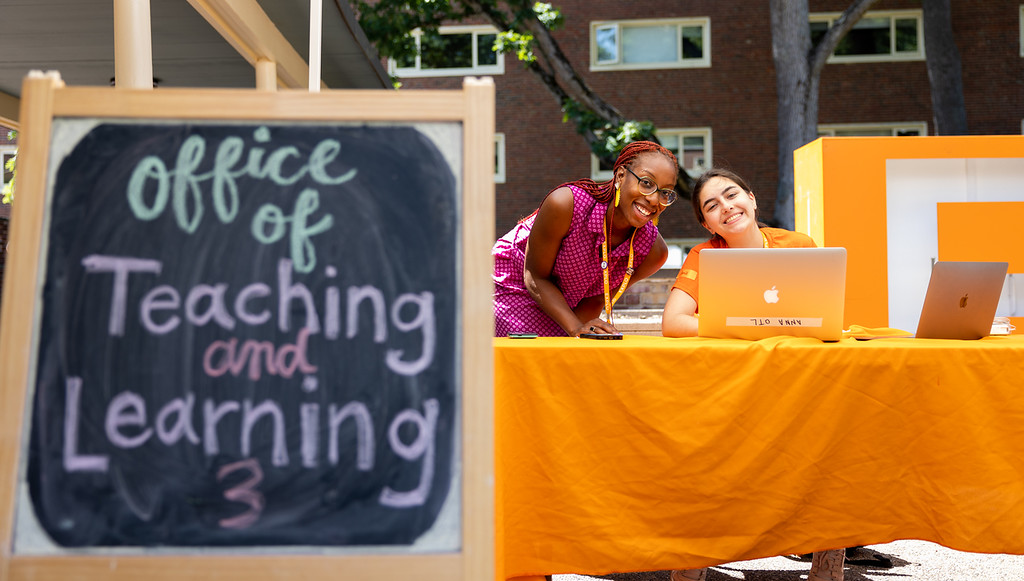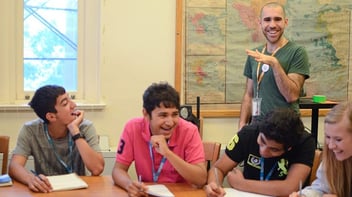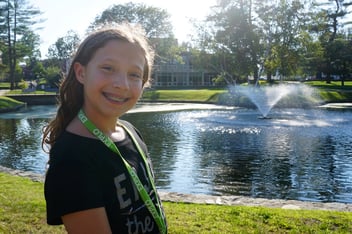Diving Into Noteworthy-But-Oft-Ignored African American Literature with Dr. Delia Steverson

Former Assistant Head of EXPLO’s Pre-College program, published author, and acclaimed expert on race and disability in African American literature, Dr. Delia Steverson is an Assistant Professor at the University of Florida, where she teaches African American literature, history, and culture. After several years of research, Delia will be releasing Stumbling Blocks and Other Unfinished Works this fall, honoring African American author, Delores Phillips, and her incredible but unsung debut novel, The Darkest Child.
EXPLO spoke with Delia about her new book, the role social media played in her research, and her advice to Pre-College students as they begin considering their future careers. Read on for our delightful and down-to-earth conversation with Dee:
Your book, Stumbling Blocks and Other Unfinished Works, highlights African American author Delores Phillips and her only published novel, The Darkest Child. Why this author? Why this book? What drew you to this story?
As a researcher at the University of Florida, I specialize in looking at representations of race and disability in African American literature, thinking about the ways that Black authors talk about, or as I say, imagine and create Blackness, through rhetoric, through lived experiences, through metaphors of disability. While I was writing my dissertation, a colleague of mine said, “Delia, you have to read this book! It’s filled with references to disability!” But it was 400 pages, and I said I couldn’t read anything else. After I graduated, I read the book, and it was really one of those books where I was so moved emotionally, that I became obsessed with trying to figure out who this woman was who had written this book that made me cry, made me laugh, made me angry, took me through a gamut of emotions.
And what did you find?
As I was Googling Delores Phillips, there was nothing about her. She didn’t have a Wikipedia page and I only saw something very small on Soho Press’ website about her. But I did find an obituary – she died in 2014. Reading her obituary, I found her daughter’s name and literally, just on a whim, I found her on Facebook, sent her a direct message, and her daughter responded to me immediately and invited me to come to Ohio, which is where they live. I received a grant from my university to go to Ohio – my mother was actually my research assistant – but I didn’t know what I was going to find. I didn’t know anything about the woman other than what was in the obituary and a short biography that was in the back of her book. When I got there, I met Delores Phillips’ sister, who was actually her best friend and also a writer, and I met Delores’ daughter, and these women brought my mom and I into their home, they cooked for us, sat us at a table, and I got to go through all of Delores Phillips’ work. I did not know that she had written so much more! She had written 10 or 12 poems, she wrote a sequel to The Darkest Child – still unfinished, a third novel, and a series of short stories. It was a goldmine! I’ve got thousands of documents, pictures, and a video of her, and her journals! I’m parsing through her journals right now and learning more about how she liked to write – with a cup of coffee in one hand and a cigarette in the other!
I can picture her writing The Darkest Child that way! What was it about that particular story that touched you so deeply?
In the novel, the mother is a single mom of 10 kids, all with different fathers. The whole novel is about them trying to escape poverty and racism in 1950’s Jim Crow Georgia. But I think what’s still relevant today is whether the American dream is actually possible for all American citizens, especially within the context of race, class, and gender. What Tangy Mae (the protagonist) has is that she’s very smart – so can your smarts actually get you out of poverty? I think this idea of whether one’s skills or abilities allow them some sort of class or social uplift is incredibly relevant to education today.
Very relevant! Now tell us more about your book!
So, my book is releasing Delores Phillips’ unpublished and unfinished works. Even though I never met this woman, this research has allowed me to get close to a person that I feel has changed my life, in a way, so I’m getting to give back to her and put this book of her work out. I am incredibly invested in finding marginalized voices, specifically of Black women, and restoring them to the historical archives where they generally have not been. And finding non-traditional ways of giving Black authors more props where it’s due.
Stumbling Blocks and Other Unfinished Works will be published by the University of Georgia Press this fall and will be available on their website, as well as on Amazon. Delia is also creating a companion website which will include teacher resources and other insights on teaching Delores Phillips’ works, to give teachers a foundation for discussing the book in the classroom. In the meantime, learn more about Delia Steverson and check out Delores Phillips’ The Darkest Child:
"Pakersfield, Georgia, 1958: Thirteen-year-old Tangy Mae Quinn is the sixth of ten fatherless siblings. She is the darkest-skinned among them and therefore the ugliest in her mother, Rozelle’s, estimation, but she’s also the brightest. Rozelle—beautiful, charismatic, and light-skinned—exercises a violent hold over her children. Fearing abandonment, she pulls them from school at the age of twelve and sends them to earn their keep for the household, whether in domestic service, in the fields, or at “the farmhouse” on the edge of town, where Rozelle beds local men for money. But Tangy Mae has been selected to be part of the first integrated class at a nearby white high school. She has a chance to change her life, but can she break from Rozelle’s grasp without ruinous—even fatal—consequences?" - Tayari Jones



